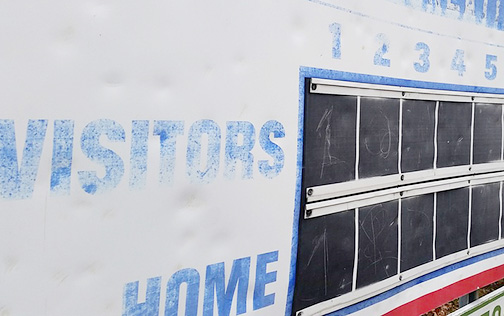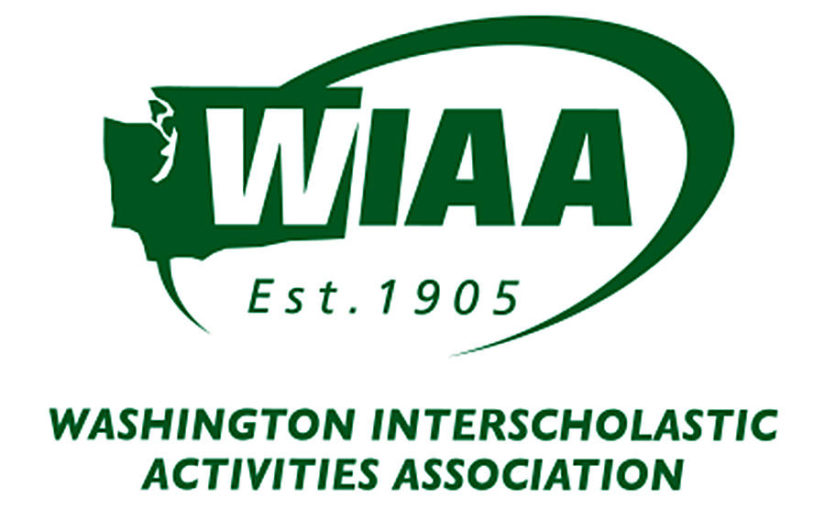A.D.ministration: Beyond the tip of the iceberg
A lot of the athletic director’s duties are visible to those in your program. Fans and parents see you performing game-management tasks at various contests, and it’s also easy to conclude that you scheduled the games, officials and transportation. These things are fairly obvious and simple to see — they represent the tip of the iceberg.
 On the other hand, the vast majority of your responsibilities occur without many even knowing that they exist. To keep your program afloat and moving forward, here are some of those behind-the-scenes responsibilities that should periodically receive your attention.
On the other hand, the vast majority of your responsibilities occur without many even knowing that they exist. To keep your program afloat and moving forward, here are some of those behind-the-scenes responsibilities that should periodically receive your attention.
Unseen responsibilities
1. Pull coaches aside and counsel them when they misspeak or have a communication faux pas. If you don’t act quickly and correct minor mistakes, they can become larger issues, which you have to deal with eventually. Keep all your coaches aligned with your overall program philosophy.2. Periodically inspect your facilities and major pieces of equipment. For example, if a scoreboard malfunctions during an important game, everyone sees it. It is possible to avert this problem by testing the equipment beforehand.
3. Have professionals do a preseason inspection of all major equipment. This includes scoreboards, ice machines and sound systems. This is an excellent time for this person to perform regular, routine maintenance. Overlooking it could lead to some major problems.
4. Prepare a long-range replacement schedule for all major pieces of equipment. The respective professionals can usually give you a fairly accurate estimate of how much life is left in each item. With this timeline information, you can plan and budget funds for replacements.
5. Keep and refer to the warrantees for your various pieces of equipment. Provided that you are operating everything properly, according to the manufacturers recommendations, there is a chance that some repairs are covered by the warranty agreements.
6. Develop a plan for handling unforeseen repair costs. Do you have a “rainy day fund” as part of your budget? Thinking ahead and having a plan for these emergency purchases can eliminate many potential headaches.
7. Try to have spare parts on hand for those items that need replacement frequently and can easily be anticipated. While very few high schools can afford spare glass backboards for their gyms, it’s wise to have a set of replacement rims. The rims are not too expensive and can be your real salvation if one suddenly breaks right before a game
8. Use your experience and plan for additional costs. In Baltimore County, for example, all high schools get a transportation allowance for their athletic trips. But, the allotment never seems to cover everything due to rising gasoline costs. It is vital, therefore, that a wise athletic director puts some money from gate receipts, fundraising or sponsorships aside for that last bill of the year (typically in June).
9. Know where you can go to get help. If you have unexpected bills, is it possible to go to your booster club with a request? It’s wise to think through and have an option when confronted with an emergency need for additional money.
10. Develop and depend upon a circle of wise counsel. When a problem erupts and you need some sage advice, maintain a short list of colleagues to call or email.
11. Always review and revise your policies and procedures over the summer. This task should be an annual one and always with the objective of covering the loopholes or new issues that develop. Whether it’s a coach, athlete or parent, someone will find a way to temporarily circumvent your protocols. You need to reword, rephrase or create new guidelines to provide a fair and easily understood system of operations.
One thought on “A.D.ministration: Beyond the tip of the iceberg”
Leave a Reply
You must be logged in to post a comment.






Thanks for all your help Dr. Hoch!